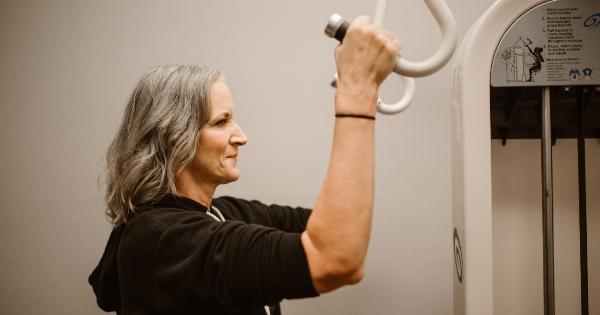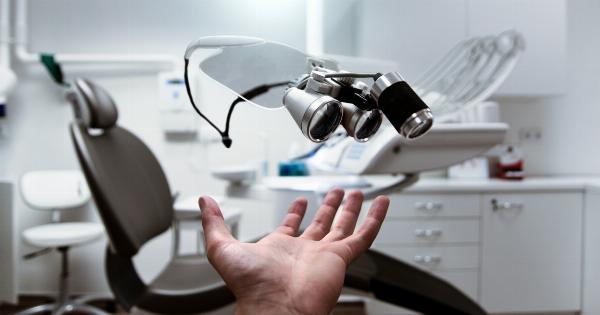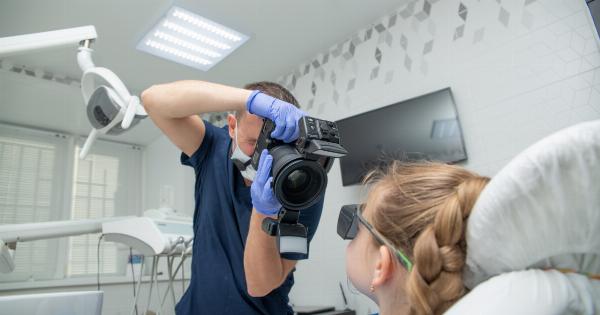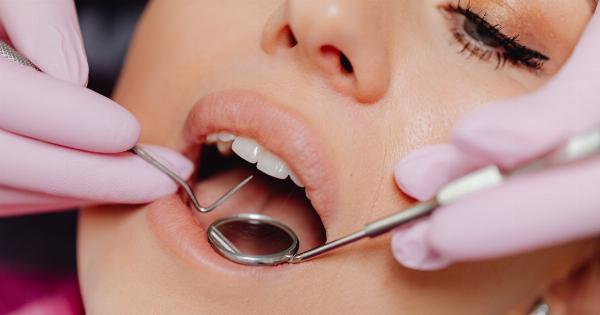For many people, a visit to the dentist can be an anxiety-inducing experience. The fear of the dentist, also known as dental anxiety or dental phobia, affects a significant portion of the population.
It can prevent individuals from seeking the necessary oral healthcare and lead to oral health problems down the line. If you’re someone who struggles with dental anxiety, it’s essential to understand the root causes and explore strategies to conquer this fear.
Causes of Dental Anxiety
Dental anxiety can stem from various factors. Some common causes include:.
1. Previous Traumatic Experiences
Many people develop dental anxiety due to past traumatic experiences at the dentist. It could be a painful procedure, an insensitive dentist, or feeling helpless and out of control during treatment.
These negative experiences can leave a lasting impression and make future visits to the dentist daunting.
2. Fear of Pain
The fear of pain is a significant factor contributing to dental anxiety. Dental treatments often involve needles, drills, and other instruments that can cause discomfort.
The anticipation of pain can lead to heightened anxiety levels, making it difficult for individuals to relax at the dentist’s office.
3. Embarrassment and Loss of Control
Some individuals feel embarrassed or self-conscious about their oral health. They fear judgment from the dentist about the condition of their teeth and gums.
The loss of control over the situation, with the dentist seemingly holding all the power, can intensify these feelings of embarrassment and anxiety.
4. Noise and Smell
The dental office environment with its unique sounds and smells can trigger anxiety in some individuals. The sound of the drill, suction, or even the scent of dental materials can be unsettling for those with dental anxiety.
Overcoming Dental Anxiety
1. Communication is Key
Open and honest communication with your dentist is crucial in overcoming dental anxiety. Let your dentist know about your fears and concerns before any treatment begins.
A compassionate and understanding dentist will take the time to listen to your anxieties and work with you to develop a plan to alleviate them.
2. Find a Dentist You Trust
Choosing the right dentist plays a significant role in managing dental anxiety. Look for a dentist who specializes in treating patients with dental phobia.
They will be experienced in creating a comfortable environment for anxious patients, utilizing techniques to minimize pain and stress during treatment.
3. Gradual Exposure
If your dental anxiety is severe, consider gradually exposing yourself to the dental environment. Start with simple, non-invasive procedures such as check-ups and cleanings to get comfortable with the dental office.
As you build trust and familiarity, you can progress to more complex treatments.
4. Distraction Techniques
Distracting yourself during dental procedures can be an effective way to manage anxiety. Bring headphones and listen to calming music or audiobooks.
Some dental offices even provide TVs or virtual reality goggles to divert the patient’s attention from the treatment.
5. Sedation Dentistry
Sedation dentistry involves the use of medication to help patients relax during dental procedures. It can range from mild sedatives to general anesthesia, depending on the level of anxiety.
Sedation dentistry allows individuals with dental anxiety to receive necessary treatment while remaining calm and comfortable.
6. Breathing and Relaxation Techniques
Practicing deep breathing and relaxation techniques can significantly reduce anxiety. When feeling anxious at the dentist, focus on slow, deep breaths.
Progressive muscle relaxation, where you tense and relax various muscle groups, can also help induce a state of calmness.
7. Cognitive Behavioral Therapy
Cognitive Behavioral Therapy (CBT) is a widely recognized psychological treatment for anxiety disorders. It can help individuals reframe negative thoughts and beliefs about dental visits, replacing them with more positive and realistic ones.
CBT equips patients with coping mechanisms to manage anxiety during dental appointments.
8. Support System
Seeking support from friends, family, or support groups can provide emotional reassurance during your journey to conquer dental anxiety. Sharing experiences and learning from others who have overcome their dental fears can be empowering and motivating.
9. Regular Dental Visits
Regular dental visits are vital for maintaining optimal oral health. By scheduling routine check-ups and cleanings, you can prevent small dental issues from escalating into more significant problems that require invasive treatment.
Consistent dental care builds familiarity and helps alleviate anxiety over time.
10. Mindfulness and Meditation
Practicing mindfulness and meditation techniques can promote a sense of calm and relaxation in any situation, including dental visits.
Engaging in deep breathing exercises, guided imagery, or mindfulness meditation can help you stay present and focused, reducing anxiety levels.























